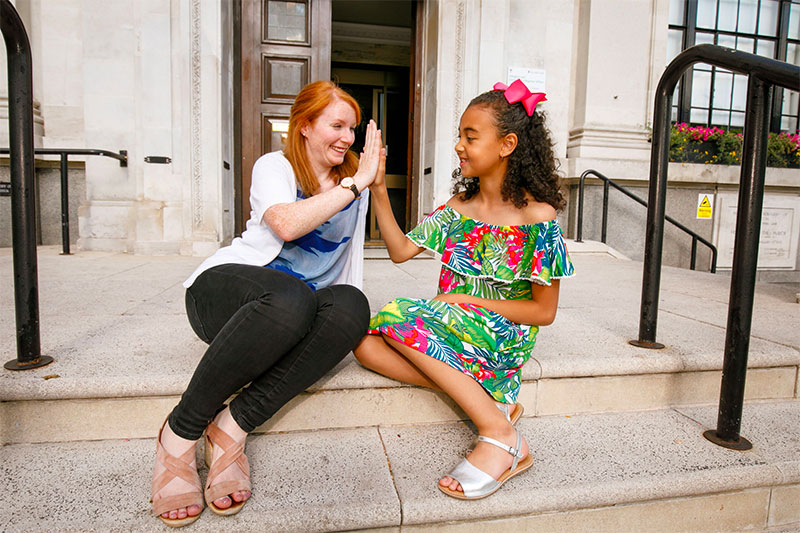A range of studies point to the general decline in girls’ mental health. A Lancet study shows that rates of self-harm in girls have tripled since 2000.[1] Another paper by the Centre for Longitudinal Studies shows that between the ages of 11 and 14 girls are significantly more likely than boys to experience mental ill-health, with symptoms including anxiety and depression.[2]
More worryingly, a recent HeadStart evidence briefing shows that these problems – particularly visible in girls – start earlier than had previously been thought: between the ages 11-14.[3] This more than anything else shows the imperative to intervene early.
We also know from various published surveys that the experience of Covid-19 and associated restrictions is exacerbating this trend. Research in the summer showed that 40% of girls felt their mental health had worsened during the lockdown.[4] Another study shows increased levels of both anxiety as well as emotional ad behavioural difficulties in primary school children (aged 4-10 years).[5]In addition, research shows that children from black and minority ethnic groups who experience racial discrimination are likely to experience low self-esteem, and high levels of anxiety and depression.
Lagging behind is a wider social response to the evidence. Together schools, professionals, charities, parents and communities need to work together to better identify indicators of poor mental wellbeing, such as low self-esteem and anxiety, which are harder to detect. We can see that schools will often identify outward facing behaviours as requiring more urgent attention and action in a classroom. In a study based on a sample of children aged 14, even parents detected fewer symptoms in girls, despite 24% of girls reporting high levels of depressive symptoms compared to 9% of boys.
To support girls to become identified in the system early we have designed the RISE programme to support girls to feel resilient and confident in themselves and in turn to build a community of support around girls who are more aware of their role in identifying and acting on the early signs of low wellbeing.
But without timely support, internalising behaviour patterns and low self-esteem can become entrenched, moving from a lower level difficulty to a much deeper mental ill-health struggle in adolescence and adult life. Early intervention is about helping to prevent that, by identifying these early signs and providing support that equips vulnerable girls with the internal resources to develop their self-esteem, better regulate their anxieties and grow their resilience.
Chance UK is responding to this gap and opportunity. RISE: Rebuild, Ignite, Succeed, Empower is a newly developed programme that will support girls aged 8-13 years who struggle with their mental wellbeing, and who are currently less well identified and under-served, despite being at greater risk in adolescence. The programme is underpinned by academic research and has been developed in collaboration with the University of York Health Sciences department.
RISE will draw on solution focused approaches to help girls explore their sense of identity and gender, both through workshops and intensive 1:1 mentoring. This programme aims to provide opportunities to highlight the positive contributions of BAME role models to girls via activities that facilitate this and by recruiting a pool of mentors to better reflect the communities mentees belong to. After graduating from our programme, we expect girls will have developed their self-awareness, grown their self-esteem and resilience, and will be empowered to make safer choices in the future.
Through this programme we will identify and work with key agents of change that can help us raise awareness of the unique needs of the girl and garner system change to support early identification of need and fast action to provide preventative support
With both private funding and the proceeds from our inaugural Big Give Christmas challenge campaign in December, we look forward very much to launching the new RISE programme in early 2021.
[1] Lancet 2019, McManus, Gunnell, et al
[2] Patalay P & Fitzsimons E. Mental ill-health among children of the new century: trends across childhood with a focus on age 14. September 2017. Centre for Longitudinal Studies: London.
[3] Learning from HeadStart: the mental health and wellbeing of adolescent boys and girls. Headstart Evidence Briefing #7, Feburary 2020.
[4] The State of Girls’ Rights in the UK: early insights into the impact of the coronavirus pandemic on girls. Plan International UK, May 2020.
[5] Levita, 2020.
